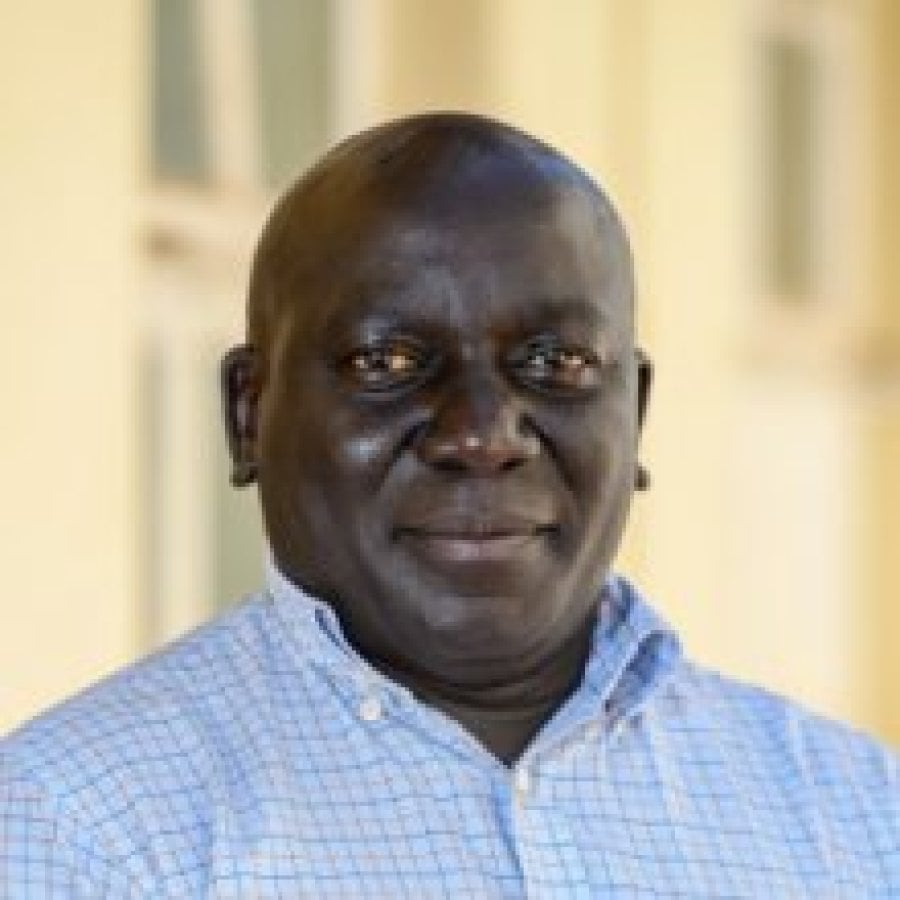
Tell us about your current research
I am a senior scientist based at MRC/UVRI & LSHTM Uganda Research Unit – Masaka field station, in south-western Uganda. My current research is focused on the OPTIMMS project, a randomised controlled trial aiming to identify immunisation schedule(s) that ensure early protection against pertussis or whooping cough.
We are currently in the final stages of the trial, after having enrolled a total of 956 children at six weeks of age. We expect our first manuscripts to be ready soon and are preparing for the next step. This involves a qualitative study exploring the perceptions, knowledge, and experiences of parents and stakeholders regarding vaccination schedules, as well as motivations for participating in the research.
How did you first become interested in vaccines?
My interest in vaccine research was sparked during my participation in the 2011 AIDS Vaccine Conference. While my initial focus was on oral pre-exposure prophylaxis (PrEP), the ground-breaking presentations on HIV vaccine development at the conference ignited my passion for vaccine trials.
Following this I started working on comprehensive studies on the epidemiology of early and recent HIV infections, HIV transmission dynamics, viral replication, and most notably, HIV vaccine research and development.
Although the trials I contributed to were primarily early-phase studies, many of which faced challenges in progressing to efficacy phases, the experience reinforced my commitment to the pursuit of an effective HIV vaccine. The setbacks did not diminish my optimism, as I was continually inspired by the dedication of the IAVI-supported consortium spanning Africa, the USA, and India. Their collective enthusiasm towards finding an efficacious HIV vaccine fostered a sense of hope and purpose in our shared goal.
What do you find particularly interesting about working as a member of the Vaccine Centre?
I have been particularly intrigued by the Vaccine Centre’s commitment to nurturing the next generation of vaccine researchers, through mentoring and supporting thesis work for students. Moreover, I have been impressed by the numerous lectures and seminars that cater for remote attendance, allowing me to stay up-to-date with the latest developments and key topics in vaccine research, regardless of my relatively rural location.
The open and collaborative nature of discussions at Vaccine Centre meetings has also been a source of inspiration. The transparent exchange of ideas and rigorous debate foster a culture of learning and growth. I have adopted this open-discussion approach at my own research site, encouraging my team to engage freely and constructively in scientific discourse.
The Vaccine Centre’s coordinated efforts in vaccine research, along with its seminars, webinars, and collaborative platforms, present an invaluable opportunity for our Unit to showcase our work, exchange ideas, and contribute to the global vaccine research community.
Where do you think your research will take you?
My work from 2019 to the present, focusing on vaccines for other infectious diseases, is contributing to answering very important questions in the field of childhood vaccination. The OPTIMMS trial platform has provided an opportunity for me to collaborate with other researchers to look for funding for malaria and rabies vaccine studies hence placing me at the forefront of addressing these critical global health challenges.
What are some of the real-life implications of your work?
The ongoing OPTIMMS study has garnered attention from vaccinologists, paediatricians, scientists, policymakers and other stakeholders. It has great potential to shape future vaccine schedules and protocols. It has paved the way for collaborations with other vaccine researchers. I am hopeful that data from the OPTIMMS trial and the mixed methods studies will be very important in informing policymakers on the most appropriate infant immunisation schedules to inform acceptability, uptake, and coverage.
What do you like doing in your spare time?
I enjoy a bit of farming, especially growing local food crops, coffee and rearing chicken and goats on a small scale. I also enjoy travelling and touring picturesque natural environmental features around the country and the world.
I also enjoy telling stories to those around me in a relaxed and informal environment.
How can people get and stay in touch with you?
Freddie.kibengo@mrcuganda.org or Freddie.kibengo@lshtm.ac.uk
Facebook page: Freddie Mukasa Kibengo
If you enjoyed this article and would like to build a career in global health, we offer a range of MSc programmes covering health and data, infectious and tropical diseases, population health, and public health and policy.
Available on campus or online, including flexible study that works around your work and home life, be part of a global community at the UK's no.1 public health university.
